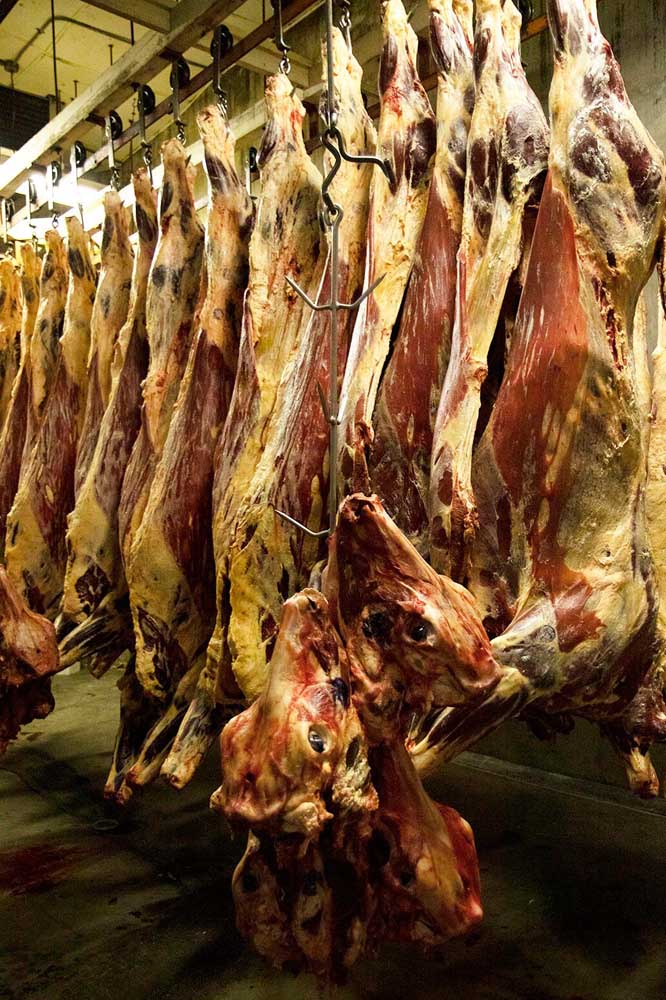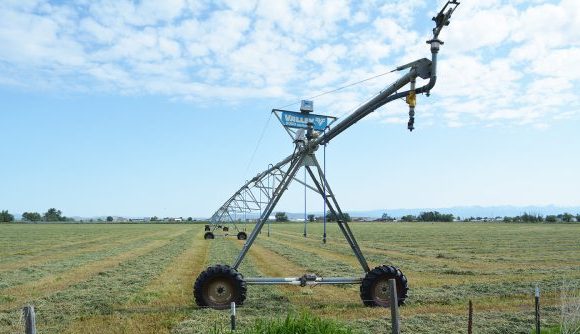Artificial intelligence poses agricultural price-fixing threat, experts say
Published 2:00 pm Thursday, August 29, 2024

- Beef carcasses hang at a slaughter facility. Antitrust experts worry artificial intelligence will spur more price-fixing and anticompetitive behavior in the meat industry and other agricultural sectors.
Artificial intelligence may become a powerful tool for farmers, but antitrust experts warn it can also be weaponized against them.
The technology is expected to transform agriculture and other industries, with fears often focused on the job losses that may result from improved efficiencies.
However, antitrust experts worry AI will enable global agribusiness to fix prices and otherwise suppress competition, harming growers and consumers, as existing laws are ill-equipped to prevent such abuses.
“It changes how price fixing happens but it doesn’t change the illegality of it,” said David Fisher, senior counsel with the American Antitrust Institute. “Algorithms are getting access to commercially sensitive information.”
Litigation is already pending over software applications allegedly spurring collusion, such as the federal government’s lawsuit that accuses the AgriStats firm of facilitating unlawful cooperation among meat packers.
Processors and packers in smaller agricultural markets, such as those for niche Northwest crops, could also potentially use AI to avoid competition due to their limited numbers, said Peter Carstensen, a law professor specializing in agricultural antitrust at the University of Wisconsin.
“It’s much more likely you’re going to have that shared understanding,” he said. “I would think these industries are prime ones if there are few competitors.”
How AI would work
While competitors looking to fix prices in an industry once might have met in the proverbial smoke-filled room, they can now avoid direct communication by conveying information to a third-party AI provider, said Fisher.
That third-party’s software application can then analyze the data about production volumes and other factors, making pricing recommendations that effectively keep prices low for growers or high for consumers without an official deal among the participants, experts say.
“It does it in a way that obscures the existence of an agreement,” Fisher said. “There’s no business justification to share that level of information with their competitors unless they were willing to collude to fix prices.”
But AI software could pose an insidious threat to competition even if it doesn’t depend on traditional data-sharing among major market players, said Carstensen.
“Those are the easy cases,” he said. “There’s nothing as overt as the sharing of confidential business information.”
A similar price-fixing effect could be achieved by AI gleaning and analyzing information from sources that aren’t confidential, thus avoiding activities explicitly prohibited by antitrust law, Carstensen said.
“That’s going to be much trickier under conventional antitrust standards,” he said. “Courts have up to now refused to recognize that as the type of conspiracy that raises an antitrust claim.”
Because AI can make sense of vast quantities of data, it can arrive at price-setting conclusions that would effectively be out of reach for ordinary analysts, he said.
AI faster than humans
“Humans can do the same thing but AI can do it a lot easier and faster and scrape data a lot quicker,” said Todd Janzen, an attorney and administrator of the AgData Transparent Organization, which evaluates how agribusiness firms use farmer information.
Of course, the technology’s capacity for interpreting massive amounts of information is also what offers “an enormous potential upside” for agriculture and other businesses, Janzen said.
“There’s only so much analysis humans can do,” he said. “AI can do more analysis than humans ever could.”
Though artificial intelligence has cutting edge implications, it poses similar questions as previously introduced agricultural tools, Janzen said. Will it keep smaller farmers competitive or simply allow big ones to get bigger?
“The companies who can harvest that information will have an advantage over those who can’t,” he said.
Competition will still likely “break out” among agribusiness firms that rely on AI, such as when one tries to gain market share by lowering prices, Carstensen said.
However, AI will make it easier for the remaining participants to identify when they’re secretly being undercut based on obscure market data, he said.
“That will deter a firm from being a maverick,” he said.
Since can AI circumvent the traditional legal criteria for identifying antitrust violations, that may require Congress to adopt an updated regulatory regime, Carstensen said.
The other option is for the Federal Trade Commission to adjust its enforcement to address “tacit collusion,” which may persuade the courts to change their understanding of what’s legal, he said.
“It will require some very substantial lobbying by enforcers and well-documented examples of competitive harm,” he said.









